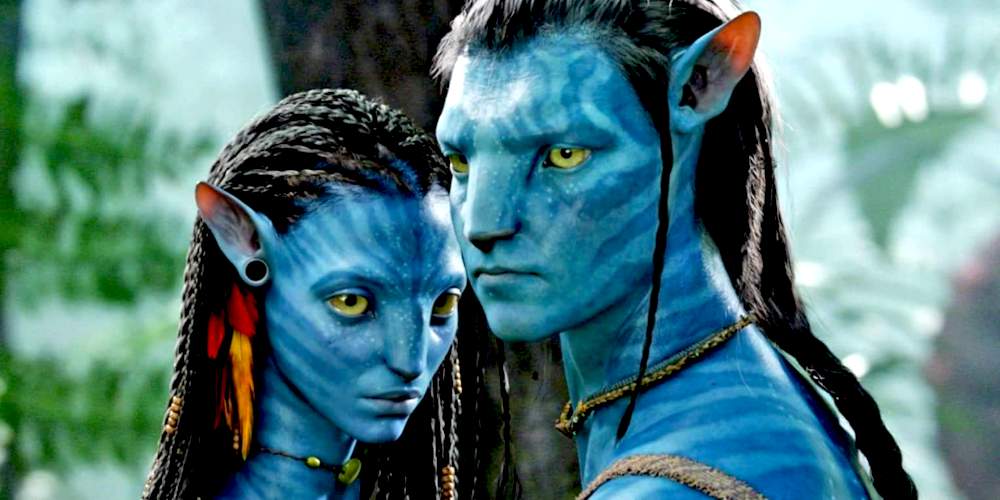You could make a case for James Cameron being the most innovative filmmaker of the modern age. His movies have consistently pushed the boundaries of what can be done with cinema technology.
His visual effects in Terminator 2 led to the popularization of computer effects in Hollywood—and that film doesn't appear to have aged a day even 30 years later, unlike many of its contemporaries.
Famously particular about his process, Cameron's reputation hasn't diminished with time. His willingness to pioneer (without fear of failure, like with 3D movies) and no-holds-barred approach to filmmaking are the reasons why his movies are some of the best in the post-modern era.
Here are our picks for the best James Cameron movies of all time. We're excluding Piranha 2: The Spawning from consideration—not only because it's awful, but because Cameron himself famously disowned the film and considers The Terminator to be his first true movie.
7. True Lies (1994)
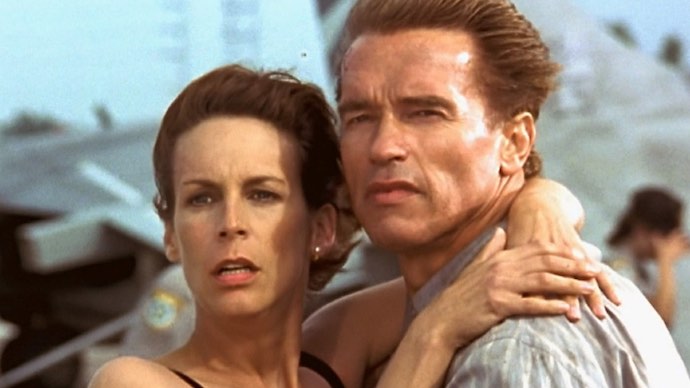
For James Cameron, True Lies is a glaring change of tone—both thematically and technically. Not that there's anything wrong with how the film looks, but the rest of Cameron's work is often permeated with his trademark striking visuals and practical effects.
Starring Arnold Schwarzenegger and Jamie Lee Curtis, True Lies is an exciting yet unambitious effort from a filmmaker who specializes in ambition, as evidenced by how he waited over half a decade for CGI technology to catch up before making Terminator 2.
The plot here follows Schwarzenegger's spy, Harry Tasker, as he attempts to balance his family life—who all believe he's only a salesperson—and his professional life, up until his family becomes embroiled and caught in the terrorist plot that he's investigating.
The direction and action sequences would be well-crafted for any other film director, but with Cameron's track record of mastery, True Lies feels downright average by comparison.
6. Avatar (2009)
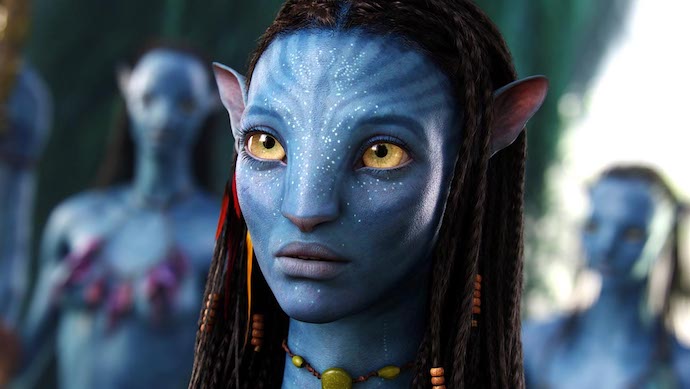
At the time, reviews of Avatar led audiences to believe that we were on the cusp of a new era in filmmaking, one that would be permeated by use of 3D effects. Now, more than a decade on from its release, we see that the novelty of 3D has worn off—as have the film's reviews.
Now considered one of Cameron's most basic efforts, Avatar can hold an audience but doesn't take them anywhere important. Sure, the look of the film is incredible, and Cameron, once again, pushed the technology of filmmaking forward, seemingly by himself.
However, when you remove the 3D element and the effects, the story is clearly bland, uninterested, and riddled with cliché. Retroactive criticism of the film has become decidedly harsher.
5. Titanic (1997)
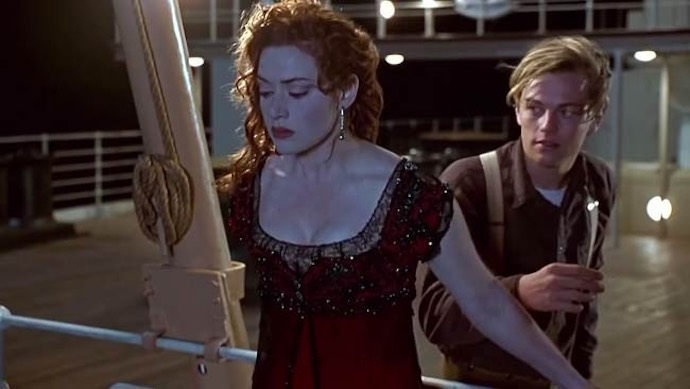
The work that James Cameron put into making Titanic cannot be understated. He made several underwater trips down to the depths where the Titanic rests, all so he could get a first-hand feeling of what the ship was like before recreating it using practical and special effects.
The movie's runtime also correlates with the exact time the actual ship took to sink, and there are several minor details about the film that are remarkably accurate—a known trait of James Cameron.
Led by Leonardo DiCaprio and Kate Winslet, the cast of Titanic is vast, populated by several outstanding actors of the era, and directed by a master-artisan. All of this shows in the film, as all the performances shine under Cameron's lens.
Looking back at the film, it's unassumingly ambitious. It doesn't have the sci-fi themes that make it a piece overtly worthy of deep thought, but the depth of knowledge and attention needed to put this epic film together makes it a task that few could have undertaken so successfully.
On Oscars night, the film would take home a record-setting eleven Academy Awards, with Cameron winning three of them.
4. The Abyss (1989)
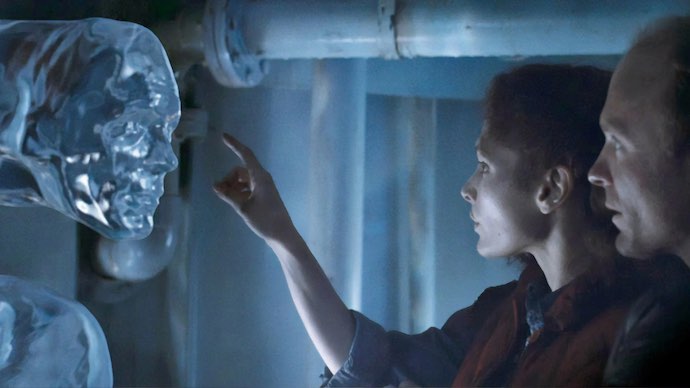
The Abyss follows a team of researchers and rescuers as they try to locate a sunken submarine, when they come across underwater alien life.
Cameron's third feature film is the film least remembered of Cameron's pictures—not because it isn't good, but because of its legendary troubled production that even star Ed Harris still refuses to talk about.
Some stories have since come to light about Cameron's obsessions while making the film, which is why Cameron now has a reputation for pushing actors and crew. He even admitted that The Abyss was far more challenging to make than he'd initially envisioned.
Despite the animosity between Cameron and his actors, The Abyss is thrilling to watch, with expert direction and performances—even if it went $4 million over budget and mentally destroyed the actors.
3. The Terminator (1984)
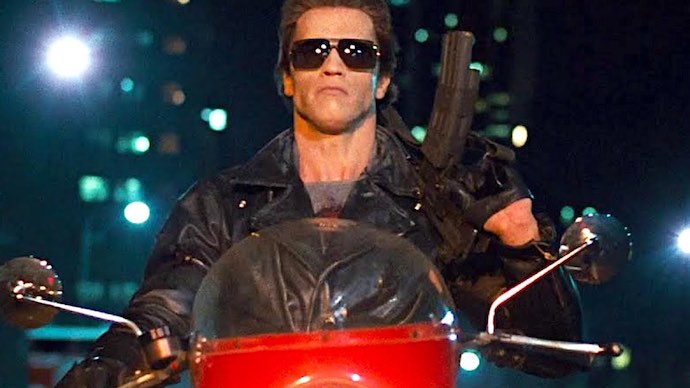
Honestly, The Terminator is a B-movie elevated by its direction, screenplay, and performances of all involved. Other than Arnold Schwarzenegger, none of the cast was well-known—and James Cameron had only made one film prior (yes, the Piranha one).
However, he set out anyway, making this film about a machine sent from the future to kill a woman who will give birth to the leader of the future human resistance. And he barely had enough money to make it.
The result? A film that launched the careers of all involved and turned Arnold Schwarzenegger into a Hollywood star. In retrospect, The Terminator has all the hallmarks of a James Cameron sci-fi film: bold, unapologetic, with a clear vision behind it.
Though the effects and production value feel somewhat dated, The Terminator cast off its obvious B-movie shackles and started an iconic franchise (that stalled in quality after Cameron departed from it).
2. Aliens (1986)
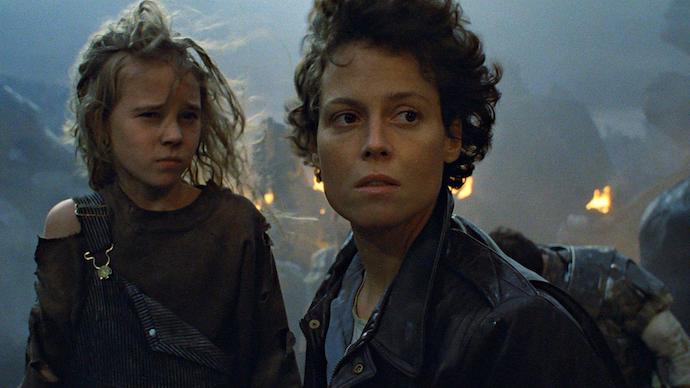
Taking over from Ridley Scott to make a sequel to Alien is a task no director would envy. Yet with his sense of confidence—and a crew that really hated him—James Cameron pulled off the impossible.
Aliens picks up 57 years from where the first left off, with Ripley still drifting in space. Upon being found, she's mentally evaluated and her story of events from the first film is disputed. But when the planet LV-426 loses contact, Ripley and a team of marines are sent to investigate why.
James Cameron's sequel, fronted by Sigourney Weaver, ditches the horror feeling of the first film and replaces it with seat-gripping action and tension. Despite a hellish production, the result ended with Aliens arguably bettering the original.
1. Terminator 2: Judgment Day (1991)
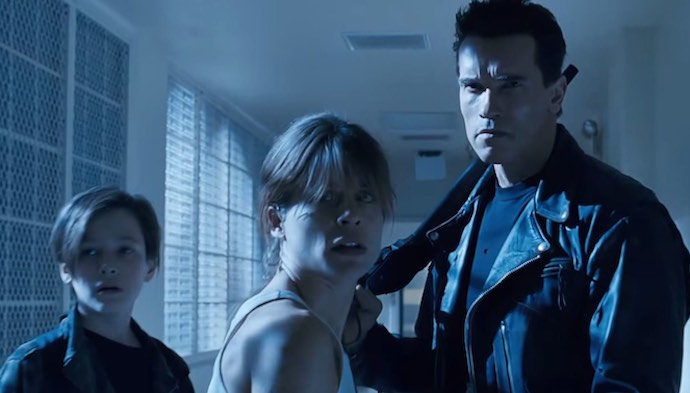
Terminator 2 became the most expensive movie ever made at the time when James Cameron went into production.
It's rare for a movie sequel to be more profound than its original, and it's celebrated whenever it happens. Terminator 2 feels made with the express purpose of following the classic proverb: "The road to hell is paved with good intentions."
As John Connor, the T-101, and Sarah Connor attempt to prevent Judgment Day and the end of humanity, it's not with a sense of malice that Cameron tells the story.
Arnold Schwarzenegger and Linda Hamilton returned for this sequel, with Arnie shifting roles from the first: now the protector of John Connor, as well as a pseudo-father figure.
The film helped advance visual effects in the film industry exponentially at the time and is still widely regarded as one of the best action films ever made. For us, it's James Cameron's best movie.
